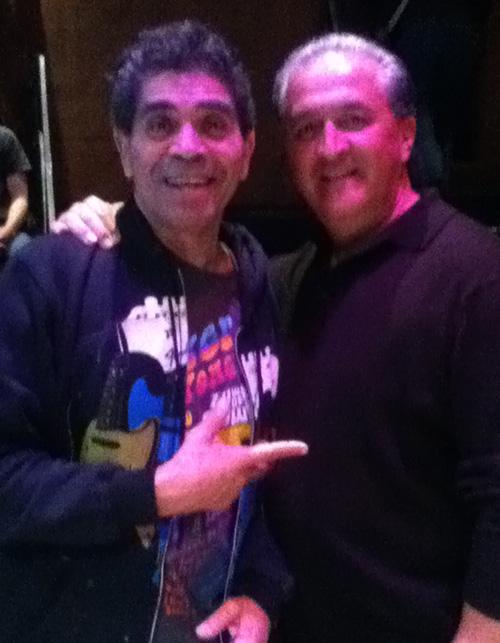“You’re still a young man, Baby… Don’t waste your time…”
When Rick Stevens first sang these words into a microphone, he didn’t realize the weight that they would carry in his own life. As former lead singer for the legendary R&B; group Tower of Power, Steven’s life has included a myriad of times – good times, fast times, hard time and redemption.
In “An evening with Rick Stevens… from fame to despair and back again,” Stevens shared his story to a room of students and community members at DVC’s Arena Theater on Monday night.
The event, which was organized by DVC administration of justice instructor Robert Canchola, attracted an audience that was as diverse as those who originally performed to see the soul group that, as Canchola said, “put the East Bay on the map.”
Says Canchola, “There is so much significant change that happened with music, civil rights and criminal justice in the 1960’s. And [Rick Stevens] – his music and his life -represents all of these changes. And all of these things happened right here, in the Bay area!”
Dressed modestly in a hoodie, a Tower of Power T-shirt and a pair of faded jeans; Stevens recalled touring and cavorting with Jimi Hendrix, Janis Joplin, Creedence Clearwater Revival, Santana, Smokey Robinson and Aretha Franklin (among others).
“Sex, drugs and rock ‘n roll,” said Stevens to the audience. “And we were right in the middle of it.”
But then his life took a dark turn.
On Feb. 19, 1976, a drug deal gone bad resulted in Stevens being arrested for triple murder.
Thus began Stevens’ journey with California’s criminal justice system. It was a journey that involved people at all levels of criminal justice – from guards to wardens to judges. Along the way, the decisions of these people made the difference between Stevens being executed and Stevens being given a second chance.
One such decision was Calfornia’s Rose Bird Court, which ruled that the state’s execution process was unconstitutional.
The themes of second chances, of the responsibility that accompanies both power and freedom, and of the crossroads decisions that make remarkable changes in both history and in the lives of individuals were repeated in Stevens’ presentation and in the questions that audience members asked Stevens during the Q&A; portion at the end of the evening.
“Life has many twists and turns,” said Stevens to the audience.
The same judge that sentenced him to death also asked Stevens to speak to people about the spiritual journey that he (Stevens) had embarked upon after being arrested.
For the remainder of the 36 years that Stevens spent behind bars, Stevens took up many opportunities to spread a message of faith, sober living, positivity and giving back to one’s community.
When asked what Stevens would advise to a person who was employed in the field of criminal justice, Steven responded with, “I would say to be fair and follow the rules – like you expect prisoners to follow the rules… Just remember that and I think you’re going to be okay.”
Stevens ended his presentation on a high note, saying that he wishes to continue to spread his positive messages to anyone who will listen.
”Find your own anointing,” Stevens told the crowd of students, fans, and various on and off-duty members of law enforcement. “[My anointing] was singing. Make a positive impact on somebody’s life. If it can work for me, it can work for you.”
Diego Hernandez, a 33 year old criminal justice major at DVC enjoyed Stevens’ presentation, saying, “[Instructor Canchola] really broke it down and made me understand the times that my mom grew up in. And listening to Stevens sing made me feel like I was experiencing a little piece of history; another piece of the pie.”
“It made me realize that you have to learn to forgive,” said Melissa Romero, 23 of Walnut Creek. Romero is also a criminal justice major. “You can’t judge a book by its cover.”
Stevens closed his presentation with an encore performance of “You’re Still a Young Man” and the evening, just like his life, seemed to come full-circle.





































































